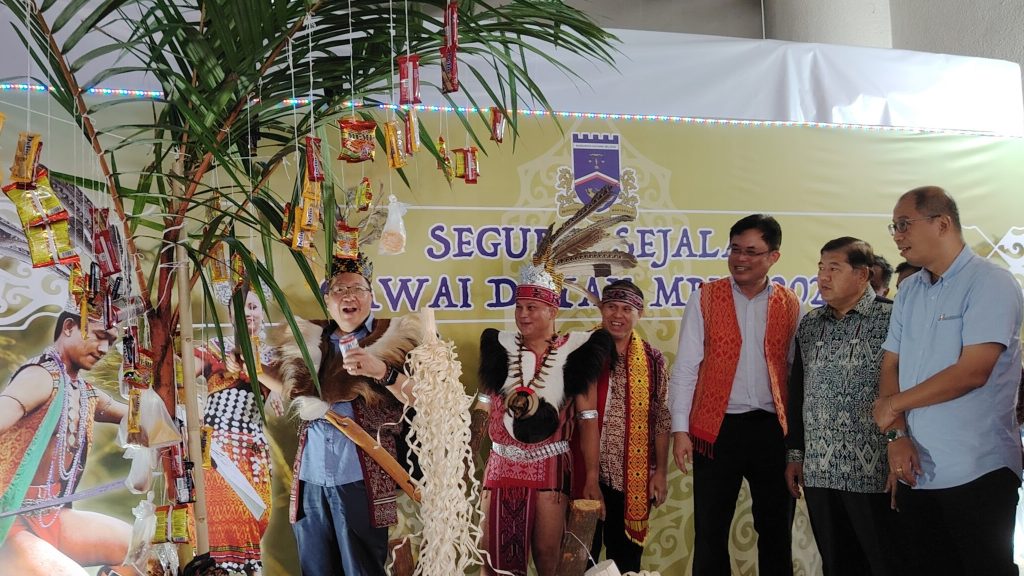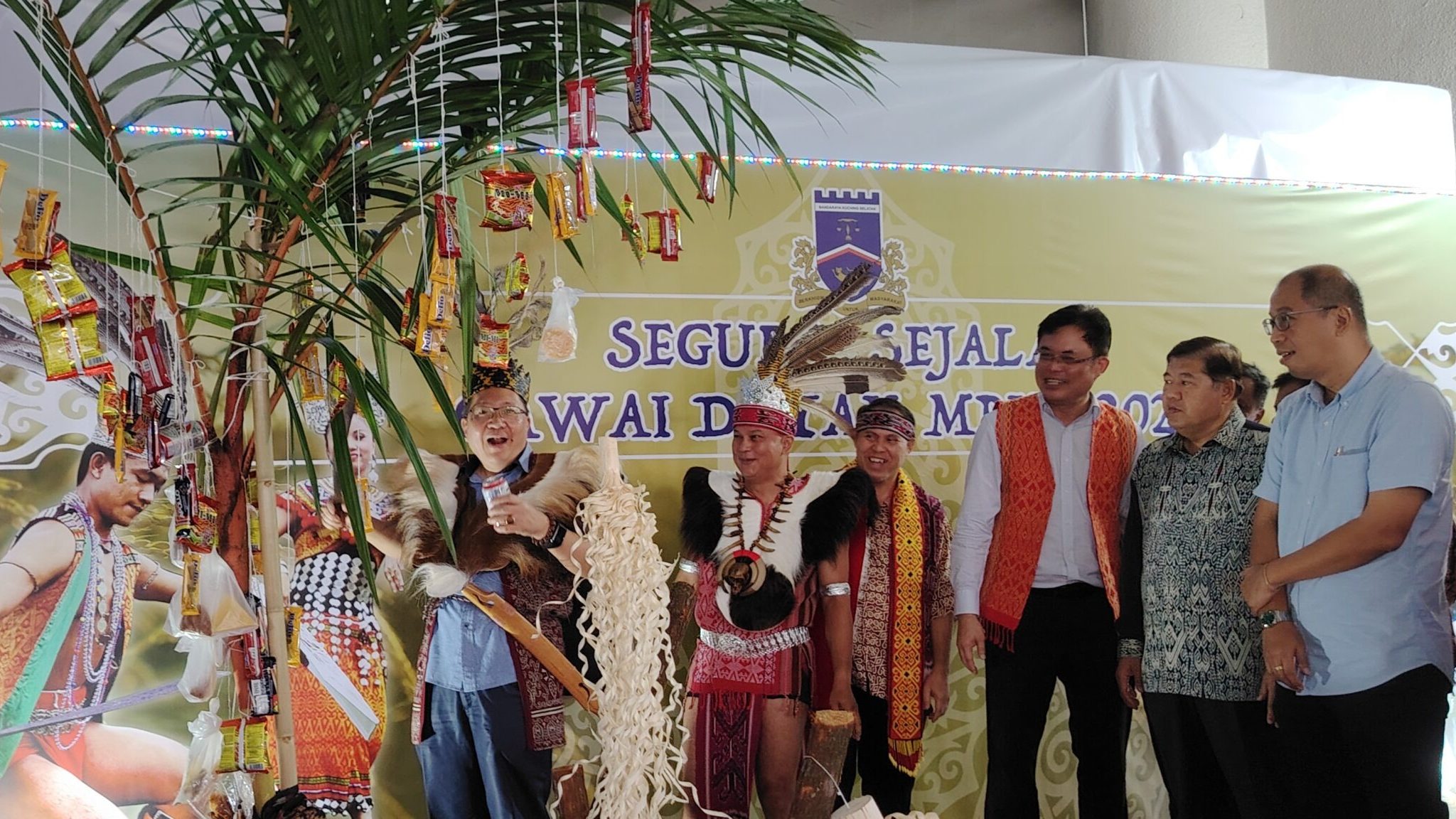Advertisements
MBKS hosts ‘Ngetas Ranyai’ ceremony to mark end of Gawai celebration

KUCHING: The Kuching South City Council (MBKS) recently hosted the ‘Ngetas Ranyai’ ceremony to signify the conclusion of the Gawai Dayak celebration, a vibrant festival that honors the end of the harvest season and the beginning of a new year.
Celebrating the Harvest and Looking Ahead
MBKS Mayor’s Address
In a speech delivered at the ceremony, MBKS Mayor Datuk Wee Hong Seng highlighted the importance of the event.
“Today, we not only celebrate the end of the harvest season but also the beginning of a new year full of promise and potential,” said Wee. “It is a time to appreciate the hard work and dedication of our farmers, whose efforts ensure that we have a bountiful harvest and food on our tables.”
The mayor’s remarks underscored the significance of agricultural contributions to the community and the gratitude owed to those who toil in the fields.
Traditional Performances and Ceremonial Acts
The ‘Ngetas Ranyai’ ceremony, held at the MBKS lobby on Friday (June 21), began with a traditional ‘ngajat’ dance performed by MBKS staff immediately following Mayor Wee’s arrival. This dance, rich in cultural heritage, set the tone for the rest of the ceremony.
Following the dance, MBKS staff members, adorned in various traditional costumes, performed on stage, showcasing the diverse cultural fabric of the Dayak community. Mayor Wee himself participated in the ‘ngajat’ dance before performing the symbolic act of cutting the tree, a key ritual that marks the end of the Gawai Dayak celebration.
Advertisements
Highlighting Cultural Heritage Through Competition
The Segulai Sejalai Gawai Dayak Event
One of the highlights of the ‘Ngetas Ranyai’ ceremony was the Segulai Sejalai Gawai Dayak event, which concluded with a prize-giving ceremony for the best costume. This competition celebrated traditional attire and craftsmanship, offering a visual feast for attendees and honoring the artisans behind these elaborate designs.
Winners of the Best Costume Awards
In the Kumang category, Nur Aisyah Raudhah Devvy stood out for her beautifully designed Orang Ulu traditional costume, winning the prize for best costume. Her attire not only captured the essence of Orang Ulu heritage but also showcased intricate design and attention to detail.
David Taha emerged as the winner in the Keling category, impressing judges with his traditional Bidayuh clothing. His outfit was a testament to the rich cultural traditions of the Bidayuh people, characterized by its distinct patterns and vibrant colors.
Reflecting on Gawai Dayak
The Cultural Significance of Gawai Dayak
Gawai Dayak is a festival celebrated by the Dayak people of Sarawak, marking the end of the harvest season and the start of a new agricultural year. The festival is a time for feasting, dancing, and giving thanks for the bountiful harvest. It is also an opportunity to strengthen community bonds and pass on cultural traditions to younger generations.
The Role of MBKS in Promoting Cultural Heritage
By hosting the ‘Ngetas Ranyai’ ceremony, the Kuching South City Council plays a crucial role in promoting and preserving the cultural heritage of the Dayak community. Such events not only provide a platform for celebrating traditional customs but also foster a sense of pride and continuity among the people.
Conclusion
The ‘Ngetas Ranyai’ ceremony hosted by the MBKS was a vibrant celebration of culture, community, and gratitude. It marked the end of the Gawai Dayak festival with traditional dances, ceremonial acts, and a costume competition that highlighted the rich cultural diversity of the Dayak people. As the community looks forward to a new year, the ceremony served as a reminder of the importance of preserving and honoring cultural traditions.
Advertisements


